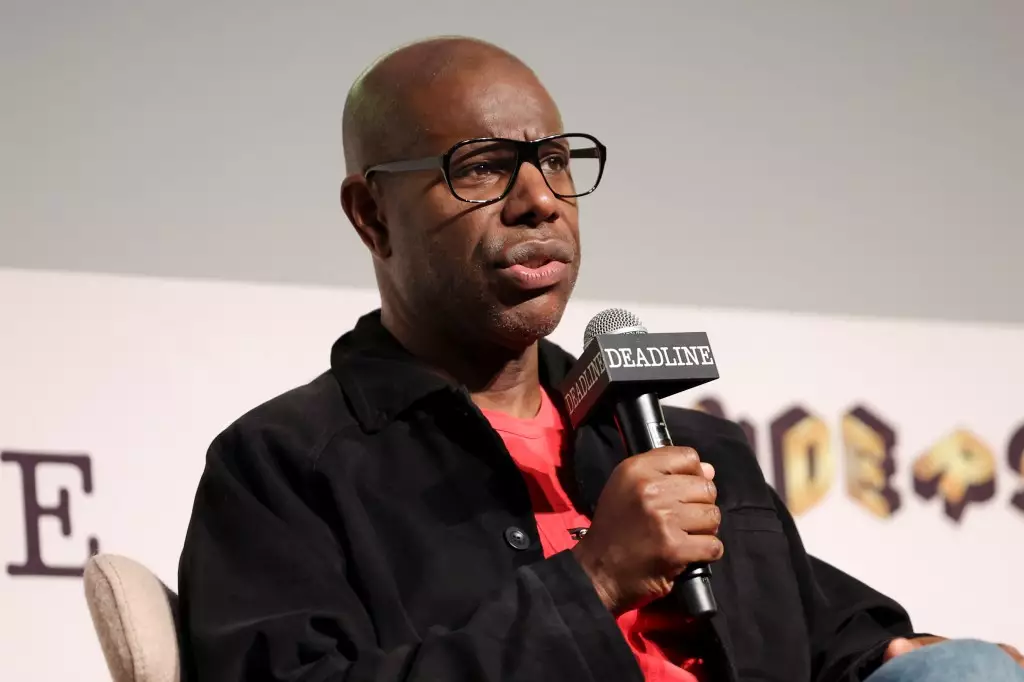In an era where films on World War II often lean on grand narratives and battle sequences, Steve McQueen’s latest offering, “Blitz,” presents a refreshing approach by framing the historical conflict through the perspective of a child. Over the decades, the storytelling surrounding this pivotal moment in history has remained largely unchanged; however, McQueen’s commitment to exploring the emotional complexities seen through the innocence of youth captivates a contemporary audience, encouraging a deeper reflection on the human condition during times of strife.
A New Lens on War
By focusing on a nine-year-old protagonist named George, played by Elliot Hefferman, the film aims to shed light on familiar narratives often overshadowed by adult-centric stories. McQueen’s vision goes beyond mere adaptation; it seeks to recalibrate our understanding of warfare and its impact on individuals who lived through it. George’s journey from the war-torn landscape of London to the English countryside, fueled by a longing to return to his mother, played by Saoirse Ronan, serves as a stark reminder of the personal stakes amidst large-scale conflict.
McQueen elucidates this notion through poignant personal anecdotes, reflecting on the purity and curiosity found in childhood. He recalls the simple joy of observing a leaf through the eyes of his daughter, a metaphor he uses to champion the idea of re-evaluating what we see in the world around us. This narrative technique accomplishes much more than simply depicting war; it invites audiences to revisit the emotional core of human experiences that often become dulled over years of exposure to violence and loss.
The decision to depict World War II from George’s viewpoint reveals the duality of innocence and peril. While children maintain a sense of wonder and exploration, they are equally susceptible to the harsh realities of their environments. McQueen’s storytelling embraces the tension between these two states, illustrating how war pulls children into the chaos, where they must confront fears and dangers unbeknownst to their young minds.
Through this lens, “Blitz” does not romanticize childhood but acknowledges its fragility. The film does not shy away from moments of horror and grief, underscoring the vulnerabilities faced by children during wartime. This shift in perspective not only makes historical events more relatable but also amplifies the emotional stakes of the narrative. By focusing on George’s determination to find his way back to his family, McQueen manages to strike a balance between a child’s quest for safety and the overwhelming reality of loss.
In crafting a believable portrayal of wartime London, Ronan’s dedication to authenticity stands out. Collaborating with a dialect coach, she navigates the complexities of the now-dwindling Cockney accent. Ronan’s experiences highlight the nuances required to embody a character from a different era, emphasizing that language is not merely a tool for communication but a vessel carrying the socio-cultural weight of its time.
This commitment to authenticity enriches the characters and the narrative landscape. Such thorough research into the speech patterns of the working class breathing life into the film transforms characters into relatable figures rather than distant historical archetypes. The blend of effort and vulnerability in Ronan’s performance ensures that the story remains grounded in its emotional truth.
With “Blitz,” McQueen boldly invites audiences to see a familiar narrative in an unfamiliar light. By juxtaposing the innocence of childhood against the backdrop of war, the film champions the exploration of emotion, vulnerability, and human resilience. This unique lens has the potential not only to evoke empathy and reflection among viewers but also to remind us of the ever-present need for curiosity, listening, and the discerning of what truly matters — because, at its heart, “Blitz” is about recognizing the profound and often lost perspective that children bring to the tapestry of history.


Leave a Reply